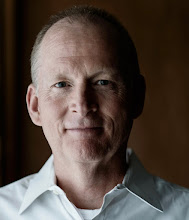 I found the following post by Scot McKnight to be a challenging and insightful read:
I found the following post by Scot McKnight to be a challenging and insightful read:Everywhere I go and nearly everyone I read has a theme, whether central or peripheral, and I think the theme is getting too much attention and it's getting too much play and it's setting us up for failure.
Here's the theme: the church is so messed up.
Instances: preaching is not that good today; theology is so shallow today; Christian morals are so loose today; parents are not that good today; we've got too much individualism today; kids don't respond as they used to; the church is spending too much money today; Christians aren't liked in culture...
The suggestion: Let's start all over again. This time we'll get it right. Let's get ourselves a group of really zealous followers of Jesus and let's think about Kingdom and forget the choir robes and denominations and pastors and hierarchy and church budgets. Finally, we'll get it right. We'll just follow Jesus and we'll forget the church. We'll do Kingdom work and forget the church.
Go ahead. Join the crowd. In a few years you'll come back to something you either face now, in a more rational manner, or later in a more chastened manner, that is if you've got any passion left. Here's my theory:
I want to say I believe in an Augustinian ecclesiology.
When I say this, I am not talking about what Augustine believed about Rome and the state. No, I'm taking the old-fashioned Augustinian anthropology, where he had a rather dismal but not altogether unrealistic theory of human nature. Fallen and broken, what I call "cracked Eikons" in my book Embracing Grace: A Gospel for All of Us. I'm suggesting we need to apply the Augustinian anthropology to create an Augustinian ecclesiology. (This, by the way, is nothing new.)
In other words, if you want perfection, don't look to the church. If you want the ideal, don't look to the church. If you want a perfect fellowship, don't look to the church. If you want the utopian society, don't look to the church.
But if you want a gaggle of cracked Eikons, sinners and mistake-makers and sometimes goofed-up and sometimes incredibly loving and joyous and devoted, then look to the church. You'll find that kind of group, but not the perfect group.
What ever makes us think the church has to be either perfect or we'll stay home and do our own thing? I've been thinking about this this year, and the thought keeps coming into my head along these lines:
God's people, whom He never disowned, in the Old Testament did some great things and some mighty stupid things; they had some great leaders and some disgusting ones; they had some high moments and they had some low moments.
God's people, whom He never disowns, in the New Testament, move from that wonderful church plant of fellowship in Acts 2 and 4 to some liars and deceivers and some great leaders who get into arguments with one another and sometimes abandon one another and get themselves in awful messes. And Paul tells us about church problems that would make us admit that an Augustinian ecclesiology is perhaps what we need because it's what we've got.
Perhaps a cracked fellowship of cracked Eikons is the point of what the church is!
Perhaps that's why the churches have always put the Eucharist table in the middle. We come to the Table to partake in God's forgiving grace because we're cracked Eikons. When cracked Eikons form a fellowship, you get a cracked fellowship. In the cracks God works His grace.

